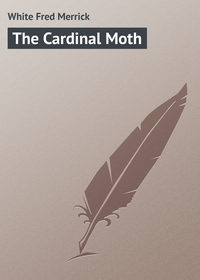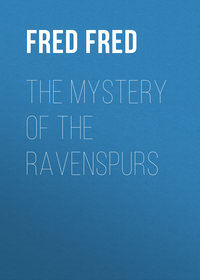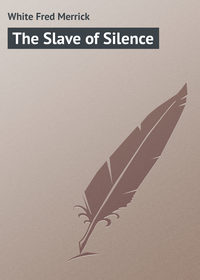 полная версия
полная версияThe Weight of the Crown
"Look at him," Maxwell said in tones of the deepest contempt. "Look at the smiling scoundrel. And yet to save him and his kingdom one of the noblest women in England is risking her all. For his sake General Maxgregor does outrage to his feelings and conceals his passionate love for the queen. I would give ten years of my life to know what is going on there."
It was impossible to hear, however. It was also impossible to see anything from the near side of the road. Jessie's anger was almost as passionate as that of her companion. It seemed a lamentable thing that the King of Asturia should be so lost to all sense of his position. And he must have known that he was making himself quite at home in the house of his deadliest enemy.
CHAPTER XXIII
GENERAL MAXGREGOR
Maxwell's coolness had come back to him again. His face was alert and vigorous; his anger had gone.
"I am afraid that I shall have to ask you to go on alone," he said. "In the face of this discovery I do not see my way to lose this opportunity. The king cannot stay here long; you will see that it is impossible for Countess Saens to run any further risks. I am going to wait."
Jessie felt that she would like to wait also, but duty was urging her elsewhere. She stood irresolute just a moment as a figure came down the street, and pausing before the house opposite, whistled a bar from some comic opera. Maxwell touched Jessie's arm.
"Just a minute," he said. "Cling to me as if we were saying good-night. Unless I am greatly mistaken, the whistle was no more than a signal. Ah, that is what I thought! Evidently all the servants have gone to bed, for here is the countess herself."
The countess opened the door and stood on the step with the light behind her. The man stopped whistling and walked up the steps. He saluted the countess properly.
"So you are here at last!" she said. The night was so close and still that her voice was easily carried across the road. "I thought that you were never coming. Take this note and see that Prince Mazaroff has it without delay. You will be able to give him the signal. See it goes into his own hand. Oh, yes, Merehaven House. The best way will be by the garden door. You know where that is."
The man nodded, and said something in Russian that the listeners could not follow. Then he lounged off up the road and the countess vanished. Maxwell was all energy.
"Come along," he said. "I have changed my mind. What the king does for the next few hours must be on his own head and on his own account. It is far greater importance for me to know what message it is that the countess has sent to Prince Mazaroff. We will walk quickly and get ahead of that fellow, so that I can hide myself in the garden before he comes. We shall probably find that the signal is a bar or two of the same opera that our man was whistling just now. Unless fortune plays me a very sorry trick, I shall see the inside of that letter within half an hour."
The slouching figure of the unconscious Russian was passed in a perfectly natural way. Maxwell glanced at him sideways, and saw that he had slipped the letter into his breast pocket. The garden gate leading into the grounds of Merehaven House was safely reached, and Jessie drew a sigh of relief as she threw off her wrap and cast it on a seat. If anybody saw her now it would be assumed that she had come out for a breath of fresh air.
She saw the lights streaming from the library window, she saw the little group there, and she drew nearer. She heard enough to tell her that she was in deadly peril of being discovered. If Mazaroff was not stopped, if he persisted in his determination, the fraud must be exposed.
What was to be done? Something would have to be done, and speedily. Varney could be trusted to stave off the evil moment as long as possible. If she could come and spoil Mazaroff's game? The idea came to Jessie like a flash – she tingled with it.
The queen! Who else but the Queen of Asturia? Jessie raced round and reached the house. She hoped that she would not be too late; she prayed that the queen had not gone. There she was, on the couch of the salon, quiet and dignified as usual, but her dark eyes were alert. She looked about her from time to time as if seeking something. Greatly daring, Jessie made a sign. With her forefinger she actually beckoned to the queen! But there was no sign of offended displeasure in the face of royalty. On the contrary, the queen rose, and making some excuse walked to the door. Once outside her manner changed entirely. Her face grew haggard, her eyes had a hunted expression.
"What is it?" she asked. "Something very wrong, or you would never… But never mind that. Speak plainly, and I will do anything I can to assist. Ay, menial work, if necessary."
"There is no necessity, madame," Jessie said breathlessly. "Nor have I time to explain. That will come later. Prince Mazaroff has made what he deems to be a most important discovery. It is nothing like so important as he thinks, but its disclosure at the present moment would ruin all our plans. He is telling Lord Merehaven all about it now in the library. Lord Merehaven is an English gentleman first and a diplomatist afterwards, and he would insist upon having the whole thing cleared up. Could you not make a diversion? Could you not interrupt, get Mazaroff out of the way if only for half an hour? Time is precious."
"It is very vague," said the queen quietly. "At the same time, I can see that you are in deadly earnest. I will go to the library myself at once."
The queen moved along the corridor swiftly, as she used to do in her mountain home long before she felt the weight of the crown on her brows. She forced a smile to her face as she entered. Lord Merehaven was listening gravely and with a puzzled frown to Mazaroff. Varney stood by laughing with the air of a man who is vastly amused.
"I don't think Lord Merehaven understands," he said. "Champagne, my dear prince, champagne in moderation is an excellent thing. But when indulged in three times a day – "
"I shall be glad if Miss Galloway will be pleased to grace us with her presence," Mazaroff said.
"Would I not do instead?" the queen said as she looked in. She was smiling gaily as she entered. She seemed to have utterly abandoned herself to the gaiety of the moment. "Miss Galloway is doing something for me, and I could not spare her for the next half hour. After that we are both at your disposal. Positively, I cannot permit three of the cleverest and most brilliant men in the house to be seeking each other's society in that selfish manner. You have quite forgotten those stamps, my lord!"
"Bless my soul, so I have!" Merehaven exclaimed. "I beg your majesty's pardon. Mazaroff was saying – "
"What Mazaroff was saying will keep," that individual muttered significantly. "There is no hurry; and the mere idea of keeping her majesty waiting – "
He bowed and smiled. It was quite clear to Jessie, who was once more outside the window, that the Russian had no idea that anything but accident had postponed his accusation. He was talking to Varney now in the most natural manner. With her hand under his arm the queen had led Merehaven away. Presently Mazaroff made an excuse and followed. Jessie stepped into the room.
"That was a very near thing, my dear," Varney said coolly. "If the queen had not come in – "
"I fetched her," Jessie said. "By great good luck I was by the window at the time. Keep Mazaroff's mouth sealed to-night, and by this time to-morrow, when he is confronted with Vera Galloway, he will see the real Vera and nobody else."
"Then you have been quite successful in your mission?" Varney asked eagerly.
Jessie proceeded to explain, and as she did so Varney's face grew grave. But after all, he reflected, things are not quite so bad as they might be. The enemy was utterly at a loss, and could not possibly know that those papers had vanished.
"You have done wonderfully well between you," Varney said at length. "What was that? I fancied that I saw the shadow of a man lurking in the garden. Just by those mimosa tubs."
Surely enough a shadow flitted along, and somebody began softly whistling a few bars of an opera. Hardly was the first bar on the man's lips before another man dashed forward and struck the whistler to the ground. There was a struggle, the sound of a blow or two, a suggestion of punishment for loafers hanging about there with a felonious intention, and the figure of the first man rose and ran headlong down the garden. In the distance the clang of the wooden door could be heard.
"We had better see into this," Varney cried. "If this is some cunning game of some gang of thieves – ?"
"It is nothing of the kind," Jessie said tranquilly. "That is Mr. Charles Maxwell. We had better go and see if he has succeeded. I will tell you presently what it all means. If he has only obtained possession of that letter without the thief knowing that the robbery was intentional!.. Come along!"
Varney followed, greatly excited. In the shadow of an alcove seat Maxwell stood with a small black envelope in his hand. He advanced coolly to Varney.
"This was intended for Mazaroff," he explained. "It was sent to him by Countess Saens. I fancy that I have managed this without yonder tool suspecting anything. This young lady will tell you all about it presently. Let us open the letter."
The letter contained nothing worse than a visiting card, with only a few words written on it. As Maxwell held it up to the light the others could see perfectly: —
"I am sending this by a sure hand. The key of the situation lies with General Maxgregor. Follow him up without delay, for time is all against us."
CHAPTER XXIV
AT THE WINDOW
Maxwell turned over the card thoughtfully and studied the neat handwriting thereon.
"We are dealing with one of the cleverest women in Europe," he said. "See how wonderfully she recovers her mistakes and picks up the tracks again. But I don't see that Maxgregor can have anything to do with it. What do you say, doctor?"
"I should say that Maxgregor had a great deal to do with it," Varney replied. "If he were not a deadly foe to these people here, there would have been no attempt to shoot him as there was to-night. Do you think that he has been tracked back to his lodgings?"
"I should say not," Jessie put in. "I was very careful about that. I told you all about the fair woman in the lane, and the way I prevented her from following the General when he went away in the ill-fitting evening dress of the king. But there might have been spies who – "
"I don't think so," Varney interrupted. "Evidently these people have found out that Maxgregor blocks the way. Depend upon it that the report has gone out to the effect that the king has left here – or so Countess Saens thinks. She calculated that Maxgregor is still here, because the messenger is sent to Mazaroff at the house. If they knew that Maxgregor was lying wounded at his lodgings, they would work at their leisure and there would have been no occasion to send that letter here."
"Which must not miscarry," Maxwell suggested. "If it does they will never think that the whole affair is an accident. My idea is that Mazaroff must have that letter and never imagine for a moment that we have read it. We can see that Maxgregor comes to no harm."
Varney was disposed to regard the suggestion as a good one. But before doing anything he would like to discuss the matter with Lechmere. Maxwell's face fell.
"In that case I will stay here till you have finished," he said. "I don't feel much like facing anybody at present, though I am as innocent of this business as a child."
"What nonsense!" Varney cried. "This is no time to stand on ceremony. Lechmere is a man of the world and a friend of yours. He is not in the least likely to condemn you until the charge is proved. I appreciate your feelings, but an empire is at stake."
Without another word the doctor slipped away and returned presently with Lechmere. He nodded in his cool, collected way at Maxwell as if nothing had happened.
"I have no doubt we shall get to the bottom of this business between us," he said. "Varney has been telling me what has happened. I am quite of your opinion, Maxwell, that Mazaroff must have that letter. When he has read it he shall be watched and followed."
"But how to get it into the fellow's hands without suspicion?" Maxwell asked.
"That is easy enough. I suppose you acted on the spur of the moment, but you were foolish to tear that envelope open without steaming it. Fortunately the envelope seems to have many counterparts in Lord Merehaven's study, and luckily it is a different texture to the correspondence card on which the message is written. Amongst my many gifts is a fair talent for copying the handwriting of other people. I'll get this fixed up. When the thing is done one of the guests shall hand the letter to Mazaroff and say that he had picked it up in the garden. I think I'll select a lady for the part. Stay here for a moment."
A little later on, and somebody touched Mazaroff's arm as he was watching a game of bridge in the card room. He turned to see a pretty girl standing by and smiling into his face. She held a letter in her hand.
"I fancy this is for you, Prince Mazaroff," she said. "I picked it up in the garden. On the whole, I came very near to having an adventure over it."
Mazaroff glanced at the envelope and his eyes gleamed. Then quite leisurely he tore off the ends and read the message. He smiled in a careless way, as if the message were of no importance.
"I am sorry there was any danger," he said, "especially as the note is so trivial. Where does the adventure come in?"
"You have destroyed my romance," the girl laughed. "I suppose it was the messenger who brought this letter for you, and not a burglar after all. I expect the messenger made a mistake and came into the garden by the door leading from the lane. Anyway, a gardener pounced upon him and the man fled. It was quite thrilling to look at, I assure you. When I had recovered from my fright I saw that letter on the grass. Then the real solution of the mystery burst in upon me."
Mazaroff laughed as if he enjoyed the story. His face grew a little grave.
"I should not tell anybody if I were you," he said. "It isn't many women here who have your pluck. If they know they will fight shy of the garden, and many a promising flirtation will be spoilt. And flirtations very often lead to marriage, you know."
The girl laughed in her turn and flitted away. Lechmere stood by the doorway awaiting her.
"You did it very well," he said. "You are a born actress, Miss Cheylesmere. Oh, yes, the joke develops; you shall play your part in it. Now, I want you to keep an eye upon Mazaroff, and if he leaves the house let me know at once."
Lechmere strolled off, pleased with the way in which events were going, and quite certain that Mazaroff had not the slightest idea what had happened. A pretty scheme was evolving itself in his mind. He went back to the study, where the others were awaiting him.
"So far so good," he said. "Mazaroff has received his letter without guessing what we know of it. At the present moment he is hunting all over the place for Maxgregor, ignorant of the fact that Maxgregor has gone long ago. Mazaroff will ask Lady Merehaven if the General has gone, and she will naturally say no, as the General did not wish her good-night. Mazaroff will be quite certain that Maxgregor would never commit such a social slip, so that I confidently hope that he will continue his hunt."
"But surely there is a much more important thing to do?" Jessie exclaimed. "Mr. Maxwell, have you forgotten whom we saw in the drawing-room with Countess Saens just now?"
"I had forgotten," Maxwell admitted. "Miss – er – Harcourt told me that the King of Asturia was here. She went on to say that he was not only here, but in such a condition that he would have to stay all night and be conveyed home in a cab. Why was he shamming?"
"Shamming!" Varney cried. "I'll stake my professional reputation that the king was not shamming. He has had some near shaves during the time he has been under my care, but never has he been nearer to death's door than he was to-night. I sincerely believe that it was only the administration of a very powerful drug that saved him."
"I know, I know," Jessie cried. "I saw a good deal of it myself. When I left him the king was unconscious. And yet not half an hour ago I saw him in the Countess Saens's dining-room."
Varney and Lechmere smiled incredibly. They both shook their heads.
"Impossible!" the former said. "Quite impossible, my dear young lady. For the last hour, or nearly an hour, the King of Asturia has been in this house clothed and in his right mind. It was I who brought him downstairs. It was I who produced his majesty to the utter confusion of Mazaroff and Gleikstein, the Russian chargé d'affaires. You must have been utterly mistaken."
"It was no mistake," Maxwell put in. "I have seen the king often enough here and elsewhere. I am prepared to swear in any court of justice that within the last half hour I have seen the King of Asturia in close companionship with Countess Saens in her own house."
Varney and Lechmere looked a little bewildered. There still appeared to be cards in the game of which they knew nothing. Varney was about to speak when Lechmere touched his arm and indicated two figures that had just entered the study.
"To prove that you two are mistaken," he said, "look there. If you know the King of Asturia so well, perhaps you will tell me who that is?"
"The king," Maxwell cried. "And the queen. And yet I am ready to swear… You don't think that he might have slipped out and – "
"No, I don't," Lechmere said curtly. "As a matter of fact, his majesty is being too carefully watched for that. He has been here all the time, I assure you."
"It's like a dream," Jessie said. "The king is in two places at once. And seeing that that is the king, who was the man we saw in Countess Saens's dining-room?"
CHAPTER XXV
AN UNEXPECTED HONOUR
The question was asked a great deal easier than it could be answered. Only Lechmere smiled.
"I fancy I could give a pretty shrewd guess," he said. "The countess has been inspired by a discovery that she has made to-night, and a double of the king might prove very useful under certain circumstances. And in spite of what this young lady says as to the way she baffled the hired spy in the lane, I fancy the countess has an inkling of the truth. We have pretty well established the fact that the king started out this afternoon with certain papers in his pocket."
"Probably an abdication of his throne in the interests of Russia," Maxwell said.
"Precisely. He was hesitating as to whether he should sign or not. He goes to some gambling hell and gets exceedingly intoxicated there. The idea was probably to force a signature out of him as soon as he was in a fit state to hold a pen. Then a vast amount of money would have changed hands. The king would have been invited to drink again, and perhaps have recovered without having the least idea where he was for the next few days. In a word, he would have disappeared. In four and twenty hours all Europe would have heard of the abdication. Now, where are those papers now? The king certainly had them in his possession when he was rescued from the gambling hell."
"I wish you had looked," Maxwell said. "If I had known this earlier!"
"Unfortunately, nobody knew of it," Lechmere proceeded. "Only our enemies. And when Maxgregor went off from here in the king's dress clothes, he took the papers in the pockets. If Madame Saens has an idea of what has happened, she knows this. Hence her note to Mazaroff. As a matter of fact, our friend the General is in considerable peril."
"In which case somebody ought to go to him at once," Jessie exclaimed.
Lechmere announced his intention of doing so without delay, but Maxwell objected. It would be far better for Lechmere to stay here and keep an eye on Mazaroff. And Maxwell was supposed to be out of the way, nobody would give him a second thought; therefore he was the best man for the purpose. Varney was warmly in favour of this suggestion, and Lechmere had no further objection to offer.
"Let it go at that," he said. "And the sooner you are off the better. There is one great point in our favour, these people can do nothing very harmful so long as those papers are missing. I mean the Foreign Office papers stolen from Countess Saens's bedroom. If we could get them back – "
"They must be got back," Varney said. "The best I can do is to go down to Scotland Yard and report the loss without being too free over the contents of the documents. Once those are back in our hands, our people can afford to be blandly ignorant of what the Mercury said to-night."
"And I should be free to hold up my head again." Maxwell murmured. "But I am wasting time here."
Maxwell disappeared into the darkness and made his way by the back lane into Piccadilly. The streets were quiet now, and very few people about. It was no far cry to the chambers occupied by General Maxgregor, and no time would be lost by going to the house of Countess Saens. Maxwell paused before it a moment. The dining-room blinds were still up, and the lights gleaming inside. But so far as Maxwell could see the room was empty. He lingered as long as he dared in the hope of something happening. He was just turning away when the front door opened and a man came out. In the passing flash of the street lamp Maxwell recognized the man who he had mistaken for the King of Asturia. The likeness became no less strong under Maxwell's close scrutiny.
The man stopped on the doorstep and lit a cigarette, and then he pulled his hat over his eyes and turned up his coat collar, warm as the night was. A hansom crawled along with the driver half asleep on his perch. In a strong German accent the man on the pavement called to the driver.
"Fleet Street!" he said. "№ 191B, Fleet Street! Office of the Evening Mercury, you know. Wake up!"
Maxwell felt half inclined to follow. But he thought of the possible danger to Maxgregor, and he was forced unwillingly to abandon his intention. Acting on the impulse of the moment, he ran up the steps of the house and tried the door. To his surprise the lock turned in his hand. At the same moment the blinds in the dining-room were pulled down by the countess herself, and the lights switched off. Maxwell stood with the door just opened; he saw the figure of the countess herself mounting up the stairs. He could hear distinctly the swish of her skirts. Then there was another click, and the hall lights vanished. Countess Saens was going to bed, having forgotten to lock the front door! That all the servants had gone to bed Maxwell felt certain, for the area quarters were all in black darkness.
"Astonishing how careless these clever women are sometimes!" Maxwell muttered as he took his way down the road. "I suppose the servants generally see to that, and her ladyship has entirely forgotten a thing that never comes within the scope of her duties."
Maxgregor's place was reached at length, and Maxwell was glad to see the lights burning. A sleepy porter had not the slightest idea whether the General was in or out. He was just going to bed himself; he never sat up after midnight, and if the gentlemen were out after this without their keys it was their own fault. Maxwell cut short this tirade by going upstairs. He walked straight into Maxgregor's sitting-room. It was a dark room on the first floor with folding doors. On the other side of the folding doors the General was stretched out on the bed. He looked somewhat haughtily at the intruder.
"This is an unexpected honour," he said. "I have met you once or twice, Mr. Maxwell, but that does not give you the right to come into my bedroom in this fashion. In the light of recent events – "
"For Heaven's sake don't take that tone!" Maxwell cried passionately. "It is impossible not to understand what you are alluding to. And it is quite futile just now to protest my innocence. That I am innocent; that sooner or later you will have to apologize for your suspicions is inevitable. Meanwhile, I am here at the request of Mr. Lechmere and Dr. Varney to warn you of your danger. Cleverly as your escape was managed, it has been found out. Let me tell you what has happened?"






